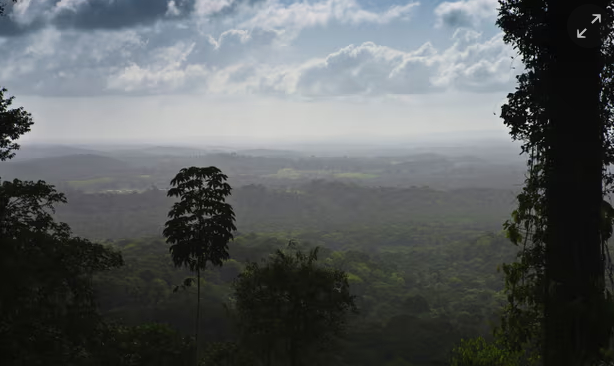November 27, 2025 | 18:00 GMT +7
November 27, 2025 | 18:00 GMT +7
Hotline: 0913.378.918
November 27, 2025 | 18:00 GMT +7
Hotline: 0913.378.918

The Amazon rainforest in Amapá state, Brazil. Photo: Alamy
This pressure has been especially driven by consumers. In a study by NIQ in early 2023, 61% of UK consumers said they felt sustainability was more important to them than it was two years ago. And with 46% expecting businesses to be the ones to bring about sustainable change, they’re looking for brands to lead the way.
This is directly impacting purchasing decisions, with 14% of people being ‘evangelist’ shoppers actively making ethical purchasing decisions and a further 69% being ‘persuadables’ open to change.
So you can understand why brands have felt a panicked desperation to be seen to be as sustainable as possible. To be doing the right thing – such as carbon offsetting.
That’s exactly what we did at Better Nature Tempeh. In 2020 we became the UK’s first carbon-negative meat-free brand. Something we were incredibly proud of and loudly celebrated.
We had looked extensively into the programmes we were funding through this and were confident they were having a positive impact. We really felt like we were doing the right thing.
It was only when our marketing manager looked into the whole process more deeply that we realised the issues with it.
To be totally clear, offsetting is not in itself a bad thing to do. Anything we can do to remove carbon emissions from the air is positive.
The issue with offsetting is that it normalises the act of paying over changing, which then results in brands prioritising quick and ineffective action over slow and effective change. It’s never been easier to create a net-zero strategy that involves almost no reduction and a lot of offsetting.
It’s also not very transparent, as what you offset today may only be removed from the environment in five years’ time, particularly in the case of practices like tree planting. That will likely be too late to reverse the impact of climate change. This is confusing and unfair for customers, who genuinely want their sustainable choices to have a positive impact now.
Digging deeper also revealed unaccredited offsetting programmes were sending credits towards projects that would be happening anyway, but using offsetting as another revenue stream. These may be in the minority, but the fact it’s happening at all is shocking.
Once we realised this, we knew we had to change our stance.
It was scary to do a u-turn on something we’d been so vocal about and felt so core to our brand at the time, but we went back to basics. What was our core mission? What were our areas of expertise? What was our role in the market? How could we have the greatest positive impact, while being realistic about what we could do as a small business?
Instead of offsetting, we decided to donate 1% of all our sales to YUM, an NGO that tackles malnutrition in Indonesia, the home of tempeh. We got our products carbon-rated by MyEmissions (all low or very low) to keep ourselves accountable on our CO2 emissions. We engaged in carbon reduction exercises to reduce wherever we could, while being realistic about our current limitations. Finally, we became a B Corp, which encompasses a lot more than just CO2, and reflects the genuine impact we want to have in everything we do.
As brands, we need to be honest with ourselves. Offsetting isn’t always wrong, but it should be a last resort and an add-on – not the core of a sustainability strategy.
(The Grocer)

(VAN) A new study reveals how the simultaneous effects of ocean acidification, salinity and loss of oxygen are making the world more fragile.

(VAN) Hopes are growing that the creation of the first 3D turkey gut model could be a turning point in the battle against the virulent blackhead disease.

(VAN) Tyson, America’s biggest meat supplier, plans to shutter one of its largest beef processing plants as the industry continues to struggle with low cattle supplies and political pressure from Washington.

(VAN) New FAO study shows how digital solutions are empowering farmers and fishers to prevent losses and build resilient agrifood systems.

(VAN) Brazil's COP30 presidency pushed through a compromise climate deal on Saturday that would boost finance for poor nations coping with global warming but that omitted any mention of the fossil fuels driving it.

(VAN) Poultry farmers in the UK have been warned that they could face one of the worst winters yet for bird flu.

(VAN) Prices of main-crop paddy have risen sharply, with jasmine rice hitting 16,100 baht per tonne — the highest level in years.